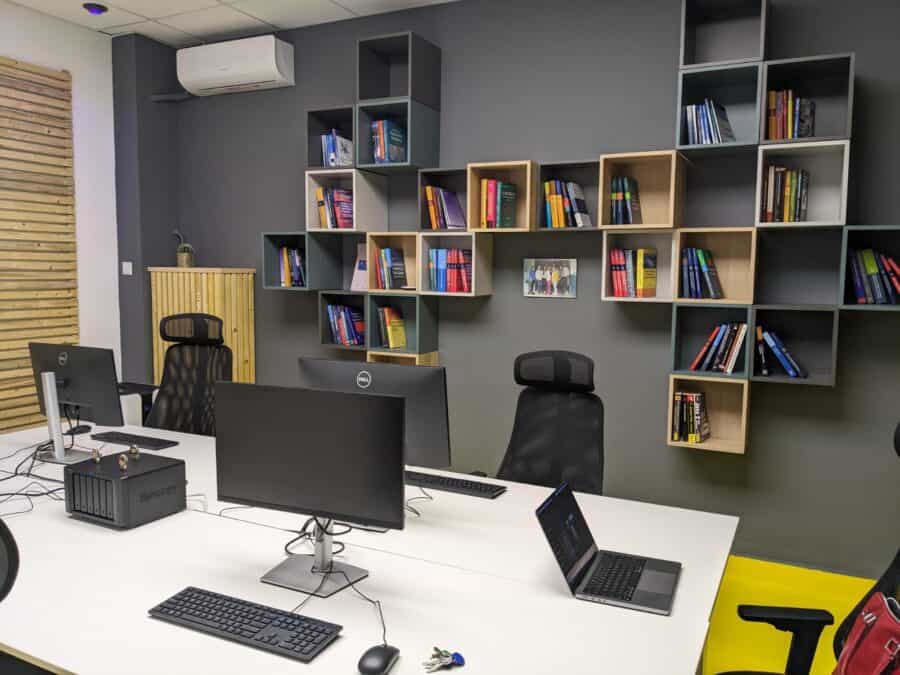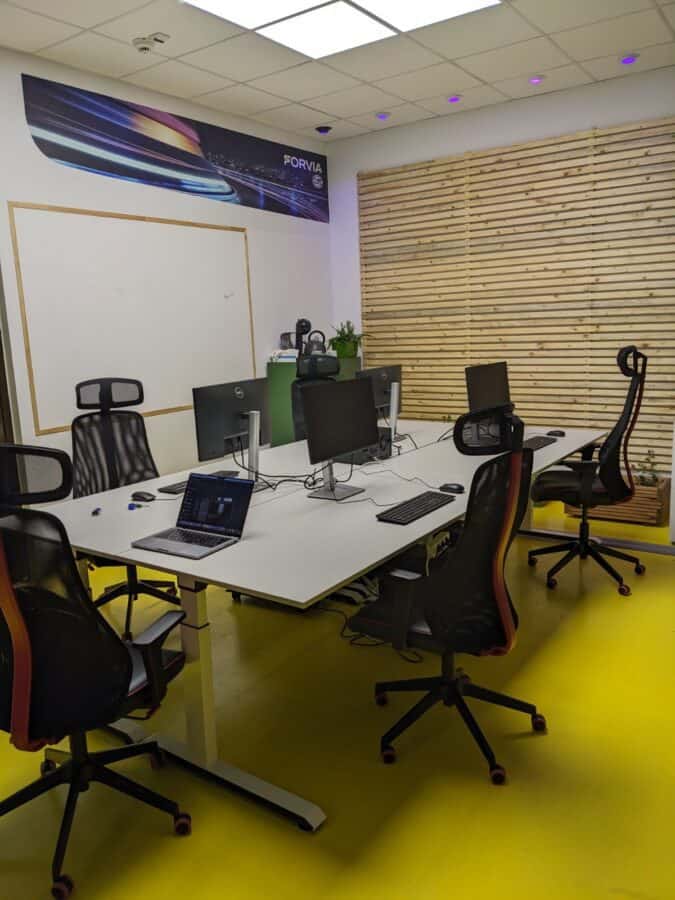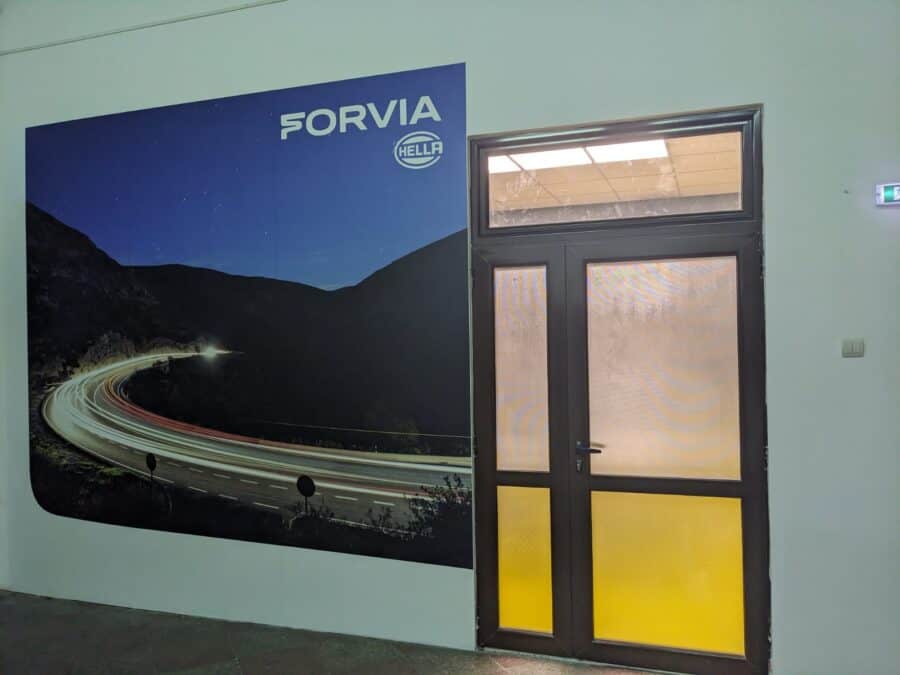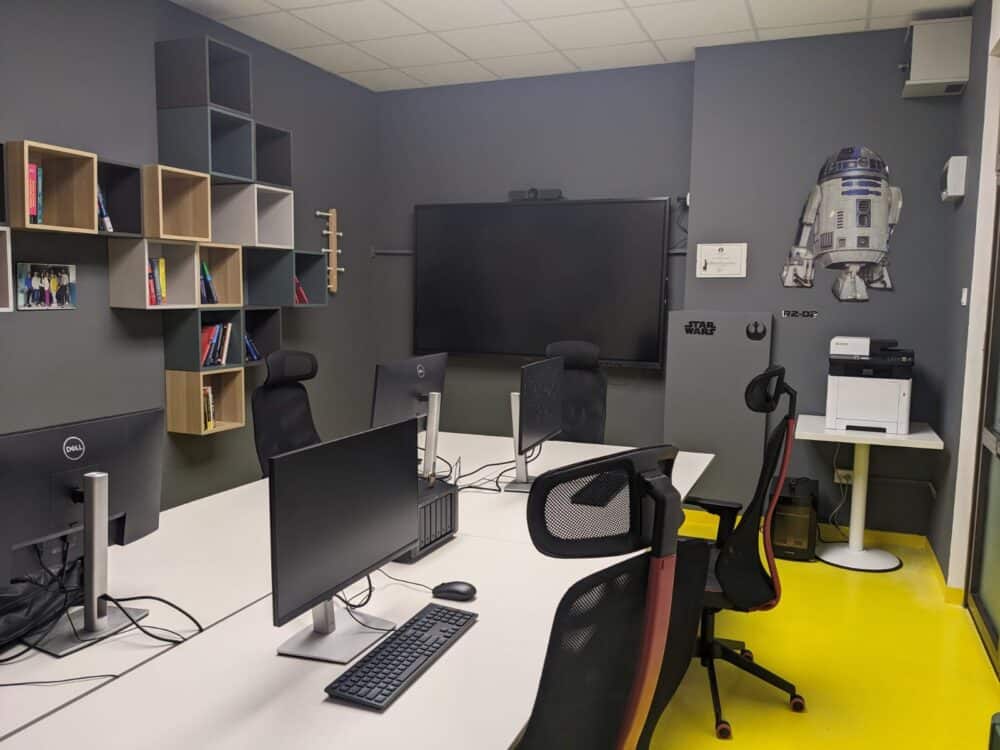At the University of Craiova, research with artificial intelligence has started before the media boom of the last months. Moreover, the bases of this specialization were laid here by Prof. univ. Dr. Nicolae Țăndăreanu, since the 1990s. Yes, there has been research on artificial intelligence since then and even earlier. In Romania too.
Congenital anomalies, discovered by AI
A team of researchers from the Informatics Department of the university is working on a specialized system, based on Artificial Intelligence (AI), which should help real doctors to easily detect congenital anomalies that appear in the fetus during pregnancy.
At the moment, it is impossible to say how frequent congenital anomalies are in the fetus in Romania, and even countries with well-established medical registries have difficulties in establishing an exact ratio, stated for PRESShub, Dr. Prof. Univ. Dr. Dominic Iliescu.
„Congenital anomalies occur in intrauterine life, during the formation or development of the fetus and affect its structure or functions. Many of these are detected prenatally through ultrasound and genetic investigations, others are discovered later, after birth”, said Dominic Iliescu.
That is why early and accurate detection of congenital anomalies is essential. This is where AI comes in, and the PARADISE project aims to improve their diagnosis rate.
The union whitch made it possible
But, as it is often the case, an important step towards any large-scale project is a simple action: identifying a space to conduct the research in.
How do you go, in Romania, in a few months, from a lecture hall, with a few old chairs and a blackboard hanging on the wall, specific to the 1990s, to a modern artificial intelligence laboratory, with high-performance computers, but also with a setting that looks like it’s from 2023?
The answer, this time, is at hand: through the passion and stubbornness of some researchers, the support of some representatives of the University of Craiova and the help of a company that understood that private money is worth investing in research also in Romania.
„For this laboratory to become a reality, it was necessary to put together several decisive factors and align the planets. That is why I am deeply grateful to the vice-rector, Prof. univ. dr. eng. Dan Selișteanu, to the dean Conf. univ. dr. Cristian Tigae, to the dean, Univ. Conf. Dr. Ana Maria Preda, and mr. Vice Dean Lect. university Dr. Claudiu Popîrlan.
Read also: 3 of the biggest lies about insects based food in European Union
Last but not least, the person who sat and worked side by side with me, from sketching the story to choosing the color of the floor and each object or plant in the laboratory, is mr. Director of the Lect Department. Univ. Dr. Gabriel Stoian, a leader like I personally have never seen before.
Once the room and the money were found, the whole set-up took a maximum of a month. I also thank Mr. Cornel Costea, the builder who made the restoration exactly after my exacting requirements”, explained, for PRESShub, Univ. Conf. Dr. Smaranda Belciug, director of the PARADISE project.
What does an AI laboratory mean in Romania?
„It’s hard to say what an AI laboratory means, in general, in Romania. In my view is a center of excellence in research (theory + practice) that creates a stimulating academic environment.

Through interdisciplinary collaborations from both the public and private domains, the lab advances new discoveries and explores new improvements in human-computer interaction, all while developing the next generation of researchers.
At the moment, the research activity of the 101PCE/2022 PARADISE project is taking place in the laboratory, in which we are building an intelligent decision system that assists gynecologists in the early detection of fetal congenital anomalies.
In the future, we will continue to apply AI in medicine, but we also want to approach the automotive industry”, mentioned Smaranda Belciug.
PRESShub asked all those involved in the project what it meant for them to be a part in the realization of the Artificial Intelligence laboratory.
„The most difficult thing is to identify real research topics to be applied and transferred to the socio-economic environment, respectively to find funding sources to put these initiatives into practice. It is a fashionable field in which there is fierce competition”, answered Prof. univ. Dr. Eng. Dan Selișteanu, vice-rector for research at the University of Craiova.
„Equipping a research laboratory in general is expensive. The AI laboratory is no exception, but this was achieved mainly through the efforts of our colleague, ms. Prof. Dr. Smaranda Belciug.
The contribution of a private actor – the Forvia Hella company – which financed the renovation of the space from the University of Craiova, as well as part of the technical equipment, was also very important.
At the same time, members of the Informatics Department were involved in the administrative formalities, in the planning process or as a human resource in the research team”, said Lect. university Dr. Gabriel Stoian, director of the Informatics Department.
Public-private collaborations are possible
The involvement of a private company was the key to setting up the laboratory. Dragoș Surlea is an old collaborator of the University of Craiova. That mattered, no doubt. He understood the direction the world is going, so he decided to help Romania not to be left behind.

„In this context, the last laboratory sponsored by our company is actually the fourth of its kind (2 at the Faculty of ACE, 2 at the Faculty of Sciences).
Indeed, it can be considered a more special one because, if the first 3 were dedicated to didactic activity, this one is intended for research activity in the University. We are trying to come, as we can, in support of the University”, said Dragoș Surlea for PRESShub.
Smaranda Belciug mentioned that, beyond money, involvement matters. Because in this way you can overcome all obstacles. Especially those that, at first look, may seem trivial, like a lecture hall.
„The computing equipment was purchased with the money from the Ministry of Research, Innovation and Digitalization. I had the people, I had the equipment, I lacked a room where we could work.
The equipment cost roughly 35,000 euros. It’s neither much, nor little for a research lab. As I said, it depends on the budget. The problem arose with the room. Eventually it was found, but it was far from my idea of what an AI research lab should look like.
And then the idea of attracting private funds appeared. Companies in general are not very open to investing in something that does not bring immediate gains”, the researcher stated.
A student Mecca
At the moment, members of the research team of the PARADISE project are working in the laboratory.
„All of them (except for me) are under 30 years old and PhD or Master’s students, my former and current students at the Faculty of Science’s Computer Science Department.
In the future, I want the laboratory to become an educational Mecca for Master’s and Doctorate students.
It is quite difficult to find young people who want to do research in Romania. The gap between private and university salaries for IT graduates is fantastic.

To perform well in research you have to devote all your time to it. You can’t have two jobs. And here comes the hard part, you have to find sharp young people, but who won’t be robbed by the financial mirage. In addition to this aspect, it should be noted that a career in research involves quite high costs.
Since the Open Science policy, researchers pay publication fees (which are not small at all) for the articles (fortunately for us, the University of Craiova supports its researchers by paying these fees), as well as fees for attending conferences to disseminate results.
At the moment, all articles written based on the results obtained within the PARADISE have been settled from the project. I hope that in the future I will be able to obtain other research projects for the financial support of young researchers”, Smaranda Belciug explained to PRESShub.
However, there is certainty that the demand for AI specialists will follow an upward trend, and therefore action must be taken quickly.
„We see that the Romanian Agency for Quality Assurance in Higher Education has taken the first step by adopting the specific standards of the Artificial Intelligence study program, newly introduced within the Informatics degree field, which we are also going to implement in Craiova”, Gabriel Stoian also explained.
What are the AI challenges today?
But being involved in research has its benefits. Especially in a field that fascinates the planet with the incredible possibilities it opens up, but also with the fears cameing from apocalyptic science fiction stories.
„It is a reality today that artificial intelligence can increase the efficiency and ability of humans to perform certain tasks. Thus, artificial intelligence gives people the opportunity to do the work they are better ‘equipped’ to do, such as creative and empathetic tasks, and takes the tedious, repetitive or dangerous tasks from them.
Regarding the challenges, I would say that next to computing power, one of the most important is the availability of data and its quality.
The performance of an AI-based system depends on the data it is trained with, and a high quality data set requires a large number of hours of human effort to label the training data. The data set must be large and comprehensive enough to be used for training purposes, while protecting sensitive or private information.
I would also note that despite the advances, implementations are still limited to specific problems, completing specific tasks and continuing to learn to improve their performance. Building an AI system with near-human intelligence capable of tackling general problems is still a big challenge for researchers.
Speaking of limits, I like to believe that AI will not be able to develop experiences specific to human beings or artificial consciousness”, explained Gabriel Stoian, director of the Department of Informatics at the University of Craiova.
Follow PressHUB on Google News !




